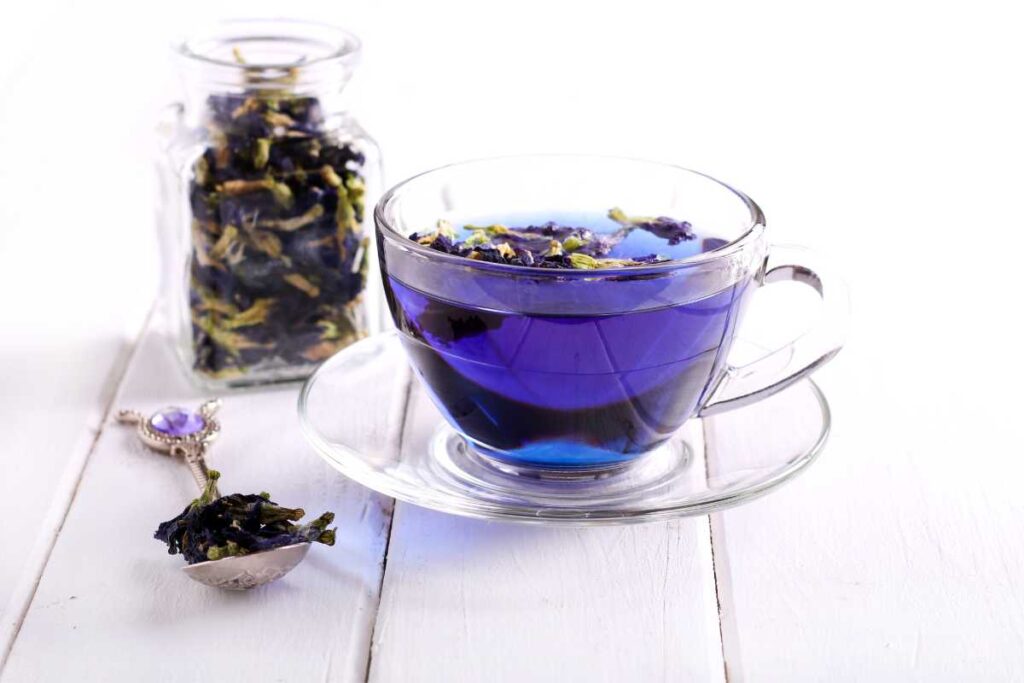Is Blue Tea Safe? A Comprehensive Guide
Blue tea, also known as butterfly pea tea, has become increasingly popular due to its vibrant blue color and potential health benefits. However, there are concerns about the safety of consuming blue tea, especially for individuals with certain medical conditions. In this article, we will explore the safety of blue tea and provide a comprehensive guide to help you make an informed decision about whether or not to include it in your diet.
What is Blue Tea?
Blue tea is a type of herbal tea made from the dried flowers of the butterfly pea plant (Clitoria ternatea). The tea is known for its bright blue color, which comes from the natural pigment anthocyanin found in the flowers. Blue tea is caffeine-free and has a slightly earthy and floral taste.
Potential Health Benefits of Blue Tea
Blue tea is rich in antioxidants and has been associated with a number of potential health benefits, including:
1. Improved Cognitive Function
Research suggests that blue tea may improve cognitive function, including memory and attention. This is thought to be due to the antioxidant properties of the tea, which may protect brain cells from damage.
2. Reduced Anxiety and Stress
Blue tea may also have calming properties and may help to reduce anxiety and stress levels. This is believed to be due to the presence of flavonoids in the tea, which have been shown to have a positive effect on mood.
3. Lowered Risk of Chronic Diseases
The antioxidants in blue tea may also help to reduce the risk of chronic diseases, such as heart disease and cancer. This is because antioxidants help to protect cells from damage and inflammation, which are both risk factors for chronic diseases.
Safety Concerns of Blue Tea
While blue tea has many potential health benefits, there are also some safety concerns to consider, especially for individuals with certain medical conditions. Here are some of the safety concerns associated with blue tea:
1. Interaction with Medications
Blue tea may interact with certain medications, including blood thinners and medications for high blood pressure. If you are taking any medications, it is important to consult with your healthcare provider before consuming blue tea.
2. Allergic Reactions
Some individuals may be allergic to the butterfly pea plant and may experience allergic reactions, such as itching, rash, and difficulty breathing, after consuming blue tea.
3. Effects on Fertility
There is some evidence to suggest that blue tea may have an impact on fertility, particularly in men. This is thought to be due to the presence of phytoestrogens in the tea, which may interfere with testosterone production.
How to Safely Consume Blue Tea
If you are interested in trying blue tea, here are some tips to ensure that you consume it safely:
1. Talk to Your Healthcare Provider
If you have any medical conditions or are taking any medications, it is important to talk to your healthcare provider before consuming blue tea.
2. Start with Small Amounts
It is recommended to start with small amounts of blue tea and gradually increase the amount over time. This can help to minimize the risk of adverse effects.
3. Purchase from a Reputable Source
Make sure to purchase blue tea from a reputable source to ensure that it is high quality and free from contaminants.
4. Monitor for Adverse Effects
Pay attention to any adverse effects you may experience after consuming blue tea and discontinue use if you experience any symptoms.
Is Blue Tea Safe: Conclusion
Blue tea is a popular herbal tea that is known for its vibrant blue color and potential health benefits. While blue tea has many potential health benefits, there are also some safety concerns to consider, especially for individuals with certain medical conditions. It is important to talk to your healthcare provider before consuming blue tea, especially if you are taking any medications or have any medical conditions. Additionally, it is recommended to start with small amounts and gradually increase the amount over time to minimize the risk of adverse effects. Overall, blue tea can be a safe and healthy addition to your diet as long as it is consumed in moderation and with caution.
FAQs
- Can blue tea cause any side effects? Ans: Blue tea may cause side effects such as allergic reactions, interaction with medications, and impact on fertility. It is important to talk to your healthcare provider before consuming blue tea and monitor for any adverse effects.
- How much blue tea can I consume per day? Ans: It is recommended to start with small amounts of blue tea and gradually increase the amount over time. It is also important to consume blue tea in moderation and with caution, especially if you have any medical conditions or are taking any medications.
- Is blue tea safe for pregnant women? Ans: There is not enough research available on the safety of blue tea for pregnant women. It is recommended to avoid consuming blue tea during pregnancy or to talk to your healthcare provider before consuming it.
- Can blue tea help with weight loss? Ans: While blue tea has many potential health benefits, there is not enough research available to support its effectiveness in weight loss. It is important to maintain a healthy diet and exercise routine for weight loss.
- Can I consume blue tea before bedtime? Ans: Blue tea is caffeine-free and may have calming properties, which makes it a good choice to consume before bedtime. However, it is important to consume blue tea in moderation and with caution, especially if you have any medical conditions or are taking any medications.





